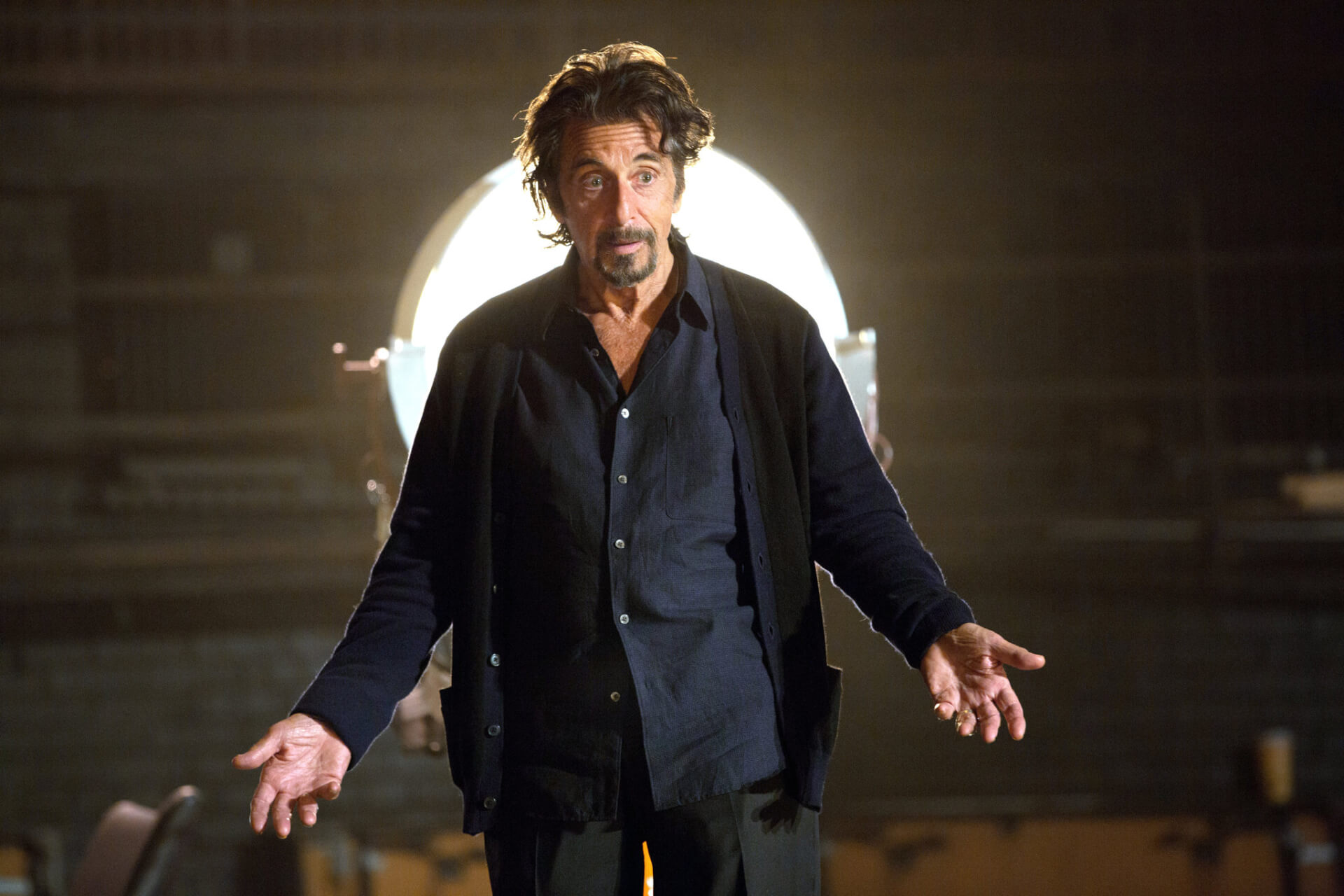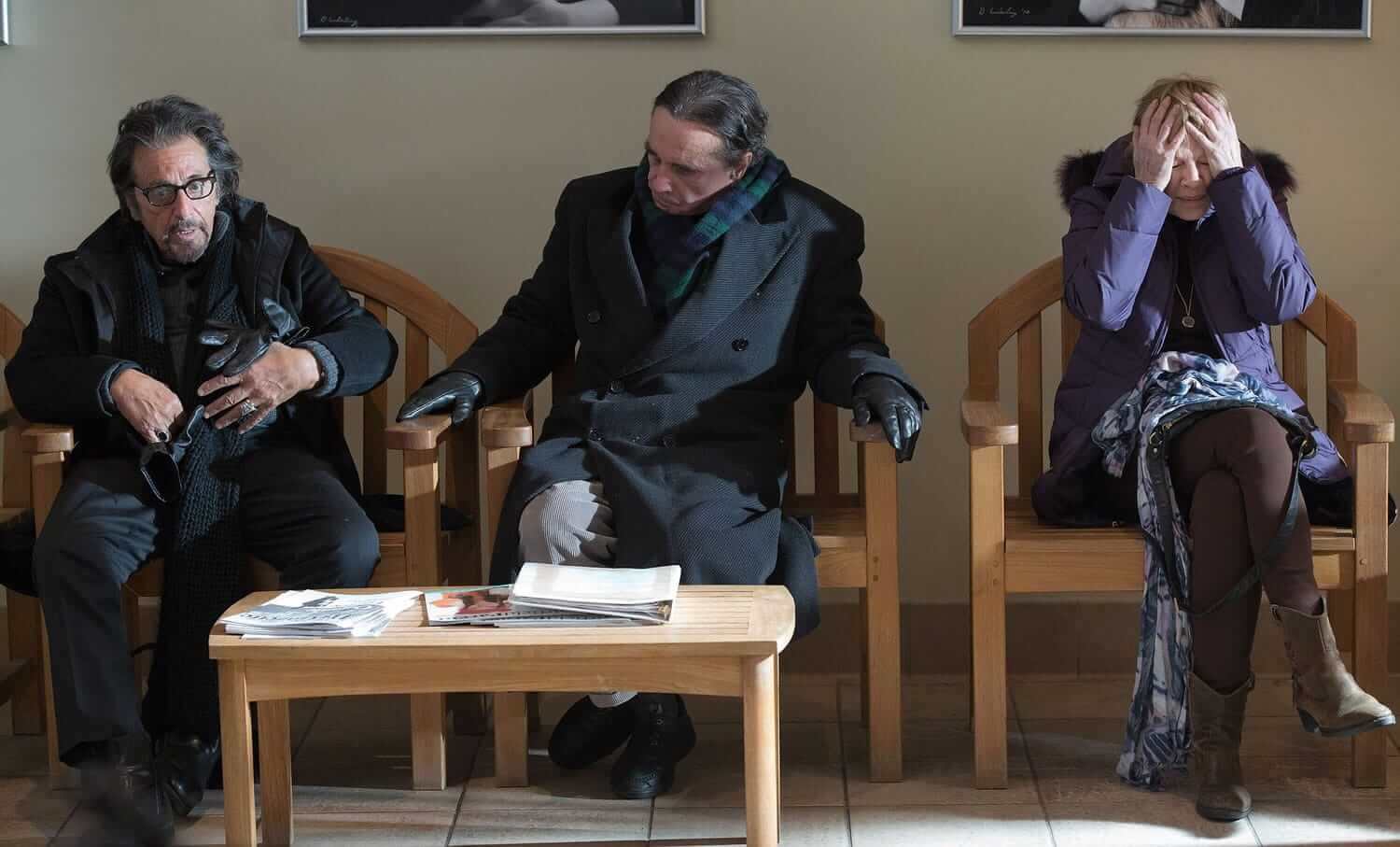THE HUMBLING. Comedy-drama film starring Al Pacino and Greta Gerwig

Another adaptation of a novel by Philip Roth. Another film by Barry Levinson, starring Al Pacino (they previously collaborated on the controversial, fact-based film “You Don’t Know Jack,” dealing with illegal euthanasia). This time, the plot revolves around the romance between an older man and a much younger woman. Considering the names involved in the film production and the catchy theme, one could expect a cinematic self-portrait. Did the creators succeed?
Simon Axler (Pacino) is a well-known, aging actor. During one of his performances, he experiences a breakdown that turns into a creative crisis. He doesn’t want to return to the stage and tries to find himself in this new situation. He dedicates time to therapy and then secludes himself in his estate, staying in constant contact with his psychoanalyst. His tranquility is disrupted by the daughter of acquaintances, Pegeen (Greta Gerwig), who visits him on her parents’ recommendation. Initially disoriented, Simon starts to become interested in the young woman, who admits she has been infatuated with him for years. Despite identifying as a lesbian (and being in a relationship), she quickly begins to flirt with the older actor.

The film received good reviews overseas but was overshadowed by another, more prominent film about an aging actor – Alejandro González Iñárritu’s “Birdman.” In this comparison, the intimate and subdued “The Humbling” appears less spectacular. However, this does not mean the film turned out to be weak. Al Pacino stopped compromising and, after a few weak roles (“Righteous Kill,” “Stand Up Guys”), noticeably returns to form. In 2014, he played two leading roles, including in “The Humbling” and “Manglehorn.” Both productions turned out to be good, portraying the passage of time in different ways (which, in itself, is an acting challenge). While “Manglehorn” had a lightness to it and situational humor made it entertaining with moments of reflection, “The Humbling” strikes slightly more serious tones.
The director devotes a lot of time to the monologues of the main character, allowing us to understand his thoughts and perception of reality. A great introduction is the scene in the dressing room, where the old actor prepares to go on stage for the final act of Shakespeare’s “As You Like It.” The camera focuses on close-ups of Pacino’s face as he practices expressions in front of the mirror, bantering with himself. For such scenes, it’s worth watching the film on a big screen. When the breakdown occurs, as well as during therapy, the tragedy of creative impotence is paralyzing for Axler – he freely talks about his problems but cannot find a solution. When his peace is disturbed by the girl, Pegeen, daughter of acquaintances, Simon dedicates a significant part of his free time and energy to her, becoming more involved in the relationship. Moreover, they decide to keep it a secret from Pegeen’s parents. The flirtation begins to change the old actor’s view of his condition and possibilities.

Undoubtedly, the straightforward plot allows focusing on excellent acting. Al Pacino, once again, is in excellent form, fully merging with the character. It’s a portrayal devoid of exaggeration, not very aggressive. This provides the audience with an exceptionally nuanced character, internally rich and externally weary. Time has left its mark on him, but this makes him more distinct – as if each wrinkle adds to his talent. He smoothly and very credibly plays a psychologically complex character. Nothing else can be expected from such a versatile and multifaceted actor. Greta Gerwig, in the role of Pegeen, has already shown that she is a good actress. Alongside Pacino, they make an interesting duo. In her performance, the young girl flirting with the old actor is magnetically attractive, and when needed, infantile and annoying. It’s worth mentioning the supporting cast. Diane West and Dan Hedaya, portraying Pegeen’s parents, despite their serious roles, contribute to the humor of some scenes (such as the argument with Simon about the sense of the relationship with the younger woman or the amusing visit to the vet).
The music, reminiscent of Woody Allen’s films, complements the overall atmosphere. The composer, Marcelo Zarvos, had previously collaborated with Levinson (“You Don’t Know Jack”), and evidently, the two understand each other on an artistic level. The pieces are light and cheerful, creating a nostalgic mood when necessary. “The Humbling” is simply a good film – however, the viewer’s perception of Pacino’s character determines its success or failure. If the character captivates the viewer, the film will also be engaging and enjoyable. If, however, the acting of the seasoned actor fails to resonate with the audience, the viewing experience may drag on indefinitely.

